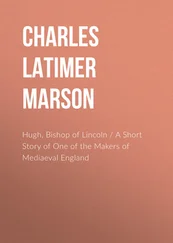Paul Vinogradoff - Villainage in England - Essays in English Mediaeval History
Здесь есть возможность читать онлайн «Paul Vinogradoff - Villainage in England - Essays in English Mediaeval History» — ознакомительный отрывок электронной книги совершенно бесплатно, а после прочтения отрывка купить полную версию. В некоторых случаях можно слушать аудио, скачать через торрент в формате fb2 и присутствует краткое содержание. Жанр: foreign_prose, Юриспруденция, История, foreign_edu, foreign_antique, на английском языке. Описание произведения, (предисловие) а так же отзывы посетителей доступны на портале библиотеки ЛибКат.
- Название:Villainage in England: Essays in English Mediaeval History
- Автор:
- Жанр:
- Год:неизвестен
- ISBN:нет данных
- Рейтинг книги:4 / 5. Голосов: 1
-
Избранное:Добавить в избранное
- Отзывы:
-
Ваша оценка:
- 80
- 1
- 2
- 3
- 4
- 5
Villainage in England: Essays in English Mediaeval History: краткое содержание, описание и аннотация
Предлагаем к чтению аннотацию, описание, краткое содержание или предисловие (зависит от того, что написал сам автор книги «Villainage in England: Essays in English Mediaeval History»). Если вы не нашли необходимую информацию о книге — напишите в комментариях, мы постараемся отыскать её.
Villainage in England: Essays in English Mediaeval History — читать онлайн ознакомительный отрывок
Ниже представлен текст книги, разбитый по страницам. Система сохранения места последней прочитанной страницы, позволяет с удобством читать онлайн бесплатно книгу «Villainage in England: Essays in English Mediaeval History», без необходимости каждый раз заново искать на чём Вы остановились. Поставьте закладку, и сможете в любой момент перейти на страницу, на которой закончили чтение.
Интервал:
Закладка:
Estimate of Palgrave's work.
Such are in the main those conclusions of Palgrave which have a direct bearing on the questions before us. It is easy to perceive that they are permeated by certain very general historical conceptions. He is greatly impressed by the 'Vis inertiae' of social condition, and by the continuity of historical development arising from it. And so in his work the British population does not disappear without leaving any traces of its existence; the Roman dominion exercises a most conspicuous influence on important aspects of later condition—on central power, feudalism, and agrarian organisation: the most recent of the Conquests—the Norman invasion—is reduced to a comparatively secondary share in the framing of society. The close connexion between Palgrave's ideas and the currents of thought on the Continent is not less notable in his attempts to determine the peculiarities of national character as manifested in unconscious leanings towards certain institutions. The Teutonic system is characterised by a tendency towards federalism in politics and an aristocratic arrangement of society. The one tendency explains the growth of the Constitution as a concentration of local self-government, the other leads from the original and fundamental distinction between a privileged class and a servile peasantry to the original organisation of the township under a lord.
There can be no question as to the remarkable power displayed in Palgrave's work, or as to the value of his results. He had an enormous and varied store of erudition at his command, and the keenest eye for observation. No wonder that many of his theories on particular subjects have been eagerly taken up and worked out by later scholars. But apart from such successful solutions of questions, his whole conception of development was undoubtedly very novel and fruitful. One of Palgrave's main positions—the intimate connexion between the external history of the Constitution and the working of private law in the courts—opened a wholly new perspective for the study of social history. But naturally enough the first cast turned out rather rough and distorted. Palgrave is as conspicuous for his arbitrary and fanciful treatment of his matter, as for his learning and ingenuity. He does not try to get his data into order or completeness, and has no notion of the methods of systematic work. Comparisons of English facts with all kinds of phenomena in the history of kindred and distant peoples sometimes give rise to suggestive combinations, but, in most cases, out of this medley of incongruous things they lead only to confusion of thought. In consequence of all these drawbacks, Palgrave's attempt only started the inquiry in most directions, but could not exhaust it in any.
Romanists and Germanists.
The two great elements of Western civilisation—Roman tradition and Teutonic tendencies—were more or less peacefully brought together in the books of Savigny, Eichhorn, and Palgrave. But in process of time they diverged into a position of antagonism. Their contrast not only came out as a result of more attention and developed study; it became acute, because in the keen competition of French and German scholarship, historians, consciously and unconsciously, took up the standpoint of national predilection, and followed their bias back into ancient times. Aug. Thierry, while protesting against the exaggerations of eighteenth-century systems, considered the development of European nations almost entirely as a national struggle culminating in conquest, but underlying most facts in the history of institutions. He began, for the sake of method, by tracing the conflict on English ground where everything resolved itself to his eye into open or hidden strife between Norman and Saxon 12 12 Histoire de la conquête de l'Angleterre par les Normands.
. But William the Bastard's invasion led him by a circuitous way to the real object of his interest—to the gradual rise of Gallo-Roman civilisation against the Teutonic conquest in France: historical tendencies towards centralised monarchy and municipal bourgeoisie were connected by him with the present political condition of France as the abiding legacy of Gallo-Roman culture 13 13 Histoire du tiers état.
.
Men of great power and note, from Raynouard 14 14 Histoire du droit municipal.
and B. Guérard 15 15 Prolégomènes au polyptyque de l'abbé Irminon.
down to Fustel de Coulanges 16 16 Histoire des institutions de la France; Recherches sur quelques problèmes d'histoire.
in our own days, have followed the same track with more or less violence and exaggeration. They are all at one in their animosity towards Teutonic influence in the past, all at one in lessening its effects, and in trying to collect the scattered traces of Romanism in principle and application. The Germans did not submit meekly to the onslaught, but went as far as the Romanists on the other side. Löbell 17 17 Gregor von Tours und seine Zeit.
, Waitz 18 18 Deutsche Verfassungsgeschichte.
, and Roth 19 19 Geschichte des Beneficialwesens, 1856; Feudalität und Unterthanenverband, 1863.
—to speak only of the heads of the school—have held forth about the mighty part which the Teutons have played in Europe; they have enhanced the beneficial value of Germanic principles, and tried to show that there is no reason for laying to their account certain dark facts in the history of Europe. The Germanist school had to fight its way not only against Romanism, but against divers tenets of the Romantic school as represented by Savigny and Eichhorn, of which Romanists had availed themselves. The whole doctrine was to be reconsidered in the light of two fundamental assumptions. The foundations of social life were sought not in aristocracy, but in the common freedom of the majority of the people: the German middle class, the 'Bürgers,' who form the strength of contemporary Germany, looked to the past history of their race as vouching for their liberty; the destinies of that particular class became the test of social development. Then again the disruptive tendency of German national character was stoutly denied, and all the historical instances of disruption were demonstrated to be quite independent of any leaning of the race. In the great fermentation of thought which led indirectly to the unification of Germany, the best men in the country refused to believe that Western Europe had fallen to pieces into feudalism because Teutonic development is doomed to strife and helplessness by deeply engrained traits of character 20 20 Roth is very strong on this point.
. German scholarship found a most powerful ally in this period of its history in the literature of kindred England: German and English investigators stood side by side in the same ranks. Kemble, K. Maurer, Freeman, Stubbs, and Gneist form the goodly array of the Germanist School on English soil.
Kemble.
Kemble's position is, strictly speaking, an intermediate one: in some respects he is very near to Eichhorn and Grimm; although his chief work was published in 1849, he was not acquainted with Waitz's first books. But Kemble is mostly in touch with those parts of Eichhorn's theory which could be accepted by later Germanists; other important tenets of the Romantic School are left in the shade or rejected, and as a whole Kemble's teaching is essentially Germanistic. Kemble's 'Saxons in England' takes its peculiar shape and marks an epoch in English historical literature, mainly because it presents the first attempt to utilise the enormous material of Saxon Charters, in the collection of which Kemble has done such invaluable work. With this copious and exact, but very onesided, material at his disposal, our author takes little notice of current tales about the invasion of Great Britain by Angles and Saxons. Such tales may be interesting from a mythological or literary point of view, but the historian cannot accept them as evidence. At the same time one cannot but wish to try and get certain knowledge of an historical fact, which, as far as the history of England is concerned, appears as the first manifestation of the Teutonic race in its stupendous greatness. Luckily enough we have some means to judge of the invasion in the names of localities and groups of population. Read in this light the history of Conquest appears very gradual and ancient. It began long before the recorded settlements, and while Britain was still under Roman sway. The struggle with the Celts was a comparatively easy one; the native population was by no means destroyed, but remained in large numbers in the lower orders of society. Notwithstanding such remnants, the history of the Anglo-Saxon period is entirely Teutonic in its aspect, and presents only one instance of the general process by which the provinces of the Empire were modified by conquerors of Teutonic race.
Читать дальшеИнтервал:
Закладка:
Похожие книги на «Villainage in England: Essays in English Mediaeval History»
Представляем Вашему вниманию похожие книги на «Villainage in England: Essays in English Mediaeval History» списком для выбора. Мы отобрали схожую по названию и смыслу литературу в надежде предоставить читателям больше вариантов отыскать новые, интересные, ещё непрочитанные произведения.
Обсуждение, отзывы о книге «Villainage in England: Essays in English Mediaeval History» и просто собственные мнения читателей. Оставьте ваши комментарии, напишите, что Вы думаете о произведении, его смысле или главных героях. Укажите что конкретно понравилось, а что нет, и почему Вы так считаете.












